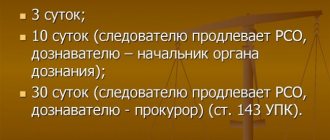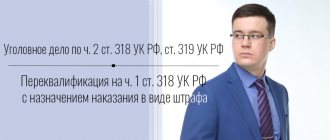Lawyers were told about the procedure for joining a criminal case as a defense lawyer
As the press service of the Federal Chamber of Lawyers of the Russian Federation reported, on November 27, a course of FPA training webinars began under the general title “Practical aspects of the implementation of the Standard for the implementation of defense in criminal proceedings.” Speaker - author of the course, adviser to the FPA, member of the Council of the Moscow Administration, Ph.D. Evgeny Rubinstein.
The topic of the first lesson was the grounds and procedure for a lawyer to enter a criminal case as a defense attorney.
At the beginning of the lecture, Evgeny Rubinstein spoke about the Standard for the implementation of defense in criminal proceedings, adopted at the All-Russian Congress of Lawyers on April 20, 2022. This Standard, the lecturer emphasized, should become a reference book for every lawyer providing defense in criminal cases. Of course, he added, in some cases the lawyer may be required to take actions necessary to provide qualified legal assistance that are not prescribed in the Standard. In such cases, it is necessary to go beyond the scope of the specified document, since its text specifies only a minimum set of actions by the defender.
The speaker recalled that the FPA Ethics and Standards Commission has the right to explain the provisions of the Standard, the explanations of which are mandatory for all lawyers. Evgeniy Rubinshtein gave examples of IES explanations that can help a lawyer make the right decision in cases where he is not sure whether he should take certain actions related to the implementation of the defense in order to ensure its continuity.
Further, the FPA adviser added that over the next two months, during his lectures as part of this course, he intends to familiarize students with the provisions of the Standard and explain how they should be implemented.
Evgeniy Rubinshtein began his consideration of the provisions of the Standard on the merits with the procedure for appointing a lawyer, pointing out that currently a lawyer is not “allowed”, but “enters” into a criminal case – i.e. he does not need anyone's permission to do this. Then the speaker considered the procedure for appointing a defense attorney using an automated information system, as well as the possibility of inviting a lawyer to provide legal assistance under an agreement.
He drew attention to the fact that lawyers entering into a case in accordance with Art. 51 of the Code of Criminal Procedure of the Russian Federation, the requirements of the following legal acts apply: the Procedure for appointing lawyers as defenders in criminal proceedings, the Decision of the FPA Council “On double protection” and the Council’s Recommendations on ensuring the continuity of protection as assigned. The provisions of these documents are detailed in the regulations of the bar chambers of the constituent entities of the Russian Federation, which Evgeniy Rubinstein recommended to study especially carefully.
He also emphasized that the most effective defense is when a lawyer participates in the case throughout the entire criminal process: from the beginning of the investigation to the final court decision or until the case is dismissed. Speaking about the inadmissibility of “double protection,” the lecturer analyzed the Resolution of the Constitutional Court of the Russian Federation of July 17, 2022 No. 28-P and cited cases of abuse of law, as a result of which, along with a lawyer by agreement, a defense attorney by appointment may appear in the case.
The speaker examined in detail the elements of the algorithm for a lawyer to join a criminal case. He emphasized that at each stage of the process (from the moment of entering into a case to gaining access to a client held in a pre-trial detention center), a lawyer may encounter problems, to resolve which it is necessary to demonstrate all his professionalism. Thus, he dwelled on the procedure for the participation of a lawyer in obtaining a confession, inviting listeners to familiarize themselves with paragraph 10 of the Resolution of the Plenum of the Supreme Court of the Russian Federation dated November 29, 2016 No. 55 “On the court verdict,” which mentions the need to ensure the right of the person filing the application about confession, “not to testify against oneself, to use the services of a lawyer, to file complaints against the actions (inactions) and decisions of the preliminary investigation bodies in the manner established by Chapter 16 of the Code of Criminal Procedure of the Russian Federation.” Next, cases were analyzed when courts deviate from fulfilling the requirements of this resolution.
In the second part of his speech, Evgeniy Rubinshtein gave practical recommendations to lawyers involved in criminal cases assigned by the bodies of inquiry, preliminary investigation and court. He noted that step-by-step instructions for lawyers are prescribed in the above-mentioned Recommendations of the FPA Council on ensuring the continuity of protection as intended.
The expert explained in detail what actions the defense lawyer should take after receiving the application, how to behave in communication with representatives of law enforcement agencies, how to obtain the materials of the criminal case and access to the principal, described possible problems that arise at this stage, as well as ways to counter them in accordance with by law.
In the final part of the webinar, the lecturer answered questions from the audience.
We remind you that the webinar will be available for viewing on the FPA website until January 30, 2022.
The next online broadcasts as part of the new educational program will take place from 10:00 to 13:50, December 2022, and January 2022.
Regulations on the rights of the accused in legal proceedings
The right to defend the accused in court is recognized and guaranteed by the Constitution of the Russian Federation and international treaties of the Russian Federation as one of the fundamental human rights.
The procedure for implementing this constitutional right is determined by the Criminal Procedure Code of the Russian Federation, when applying the norms of which the legal positions of the Constitutional Court of the Russian Federation and the European Court of Human Rights must be taken into account. In accordance with the Code of Criminal Procedure of the Russian Federation, a person becomes an accused immediately after an authorized official (investigator, interrogating officer, etc.) signs a lawful and substantiated resolution to bring him or her as an accused or after the head of the inquiry body approves the indictment or indictment. In cases of private prosecution (category of cases in respect of which the trial begins and ends at the request of the victim: intentional infliction of minor harm to health, beating by a person subject to administrative punishment, slander), when no pre-trial proceedings were carried out on the application, the person against whom a complaint is filed, becomes an accused (defendant) from the moment it is established that the magistrate has grounds for scheduling a court hearing.
They become accused regardless of whether they know about the adoption of these acts or not.
What is the basis for building a line of defense in court?
How does a lawyer defend an accused in court? After reviewing the indictment, the lawyer analyzes the materials of the criminal case from the point of view of compliance of their content with the conclusions in the indictment and decides how to build a line of defense in court, and coordinates it with the client. Guided by the interests of his client, he forms positions that he will defend in court. If the principal does not plead guilty, then the lawyer should seek his acquittal, and not point out mitigating circumstances, since such a position would be contrary to the interests of the principal.
A lawyer should act with special attention in a situation where the client admits his guilt, and the lawyer comes to the conclusion that such a confession contradicts the evidence available in the criminal case, i.e. there is self-incrimination. In such cases, even if the accused is found guilty, the lawyer must continue to protect the interests of the client.
When defending the interests of the accused in court, the lawyer proceeds from the fact that the conviction should not be based on assumptions, but on reliable evidence, when all the emerging versions of the case have been investigated, and existing contradictions have been eliminated and assessed. In this case, the lawyer must be guided by the principle that any doubts are interpreted in favor of the accused.
Recommended reading:
Preparing a lawyer for a court hearing
Rights of the accused
The right of the accused to defense includes not only the right to use the assistance of a defense lawyer, but also the right to defend himself personally and (or) with the help of a legal representative by all methods and means not prohibited by law. The accused has a wide range of rights. Thus, according to Article 47 of the Code of Criminal Procedure of the Russian Federation, the accused has the right to:
1) know what he is accused of and receive a copy of the resolution to initiate a criminal case in which he is charged as an accused;
2) receive a copy of the decision to charge him as an accused, a copy of the decision to apply a preventive measure against him, a copy of the indictment, indictment or indictment;
3) object to the accusation, testify on the charge brought against him or refuse to testify;
4) provide evidence;
5) file petitions and challenges;
6) give evidence and explain in his native language or a language he speaks;
7) use the help of a translator for free;
9) have meetings with the defense lawyer alone and confidentially, including before the first interrogation of the accused, without limiting their number and duration;
9.1) from the moment of choosing a preventive measure in the form of detention or house arrest, have meetings without limiting their number and duration with a notary in order to certify the power of attorney for the right to represent the interests of the accused in the field of business activity. At the same time, it is prohibited to perform notarial acts in relation to property, money and other valuables that may be seized in cases provided for by this Code;
10) participate, with the permission of the investigator or inquiry officer, in investigative actions carried out at his request or the request of his defense attorney or legal representative, familiarize himself with the protocols of these actions and submit comments on them;
11) get acquainted with the decision on the appointment of a forensic examination, pose questions to the expert and get acquainted with the expert’s conclusion;
12) upon completion of the preliminary investigation, get acquainted with all the materials of the criminal case and write out any information and in any volume from the criminal case;
13) make copies at your own expense from the materials of the criminal case, including using technical means;
14) bring complaints against the actions (inaction) and decisions of the inquiry officer, the head of the inquiry unit, the head of the inquiry body, the inquiry body, the investigator, the prosecutor and the court and take part in their consideration by the court;
15) object to the termination of the criminal case;
16) participate in the trial of a criminal case in the courts of the first, second, cassation and supervisory instances, as well as in the court’s consideration of the issue of choosing a preventive measure in relation to him;
17) get acquainted with the protocol and audio recording of the court session and submit comments on them;
18) appeal the verdict, ruling, court order and receive copies of the appealed decisions;
19) receive copies of complaints and presentations brought in a criminal case and file objections to these complaints and presentations;
20) participate in the consideration of issues related to the execution of the sentence;
21) defend themselves by other means and methods not prohibited by this Code.
The procedural rights of the accused cannot be limited due to the participation of his defense attorney in the case.
Legal representation in court
Take advantage of free assistance from an experienced lawyer using the link below.
Consultation is possible online or in our Moscow office. ASK AN EXPERT





